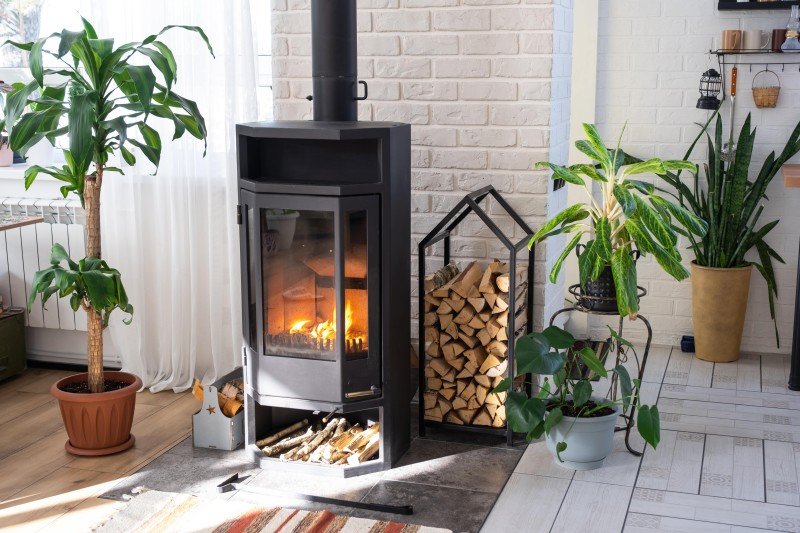10 Key Factors On Buy Fireplace You Didn't Learn In School
A Comprehensive Guide to Buying a Fireplace: Choosing the Right Fit for Your Home
Fireplaces have actually long been a central function in homes, providing heat, ambiance, and a meeting place for friends and families. Whether you're building a new home, refurbishing an existing space, or merely seeking to update your current setup, buying the best fireplace can make all the difference. This guide aims to offer an extensive introduction of different fireplace choices, factors to consider for setup, and ideas for maintenance.
Kinds of Fireplaces
When considering a brand-new fireplace, homebuyers will discover a number of types to select from. Each type includes its own unique features, benefits, and downsides. Below is a breakdown of common fireplace types:
Fireplace Type
Description
Pros
Cons
Wood-Burning
Traditional option using logs for fuel.
Authentic experience, strong heat source.
Requires routine upkeep, fuel storage, and ventilation.
Gas
Utilizes gas or gas, typically with a vented or ventless option.
Easy to utilize, less maintenance than wood.
Requires a gas line, may lose some atmosphere.
Electric
Plug-and-play choices with no need for venting, offering simulated flames.
No installation required, safe for homes.
Does not have the authenticity of real flames.
Ethanol
Uses bio-ethanol fuel in a portable or fixed system.
Tidy burning, no venting needed.
More pricey fuel costs, restricted heat output.
Pellet
Burns compressed wood pellets for fuel, comparable to wood-burning.
Ecologically friendly, low emissions.
Requires electrical power for operation, specific fuel required.
Secret Considerations When Buying a Fireplace
1. Space Size and Layout
The fireplace must be ideal for the size and design of the room. A fireplace that is too large might overwhelm the area, while one that is too small may not successfully heat the location.
2. Heating Needs
Consider just how much heat you need for the area. An electric fireplace may be adequate for a smaller sized space, while a wood-burning or gas fireplace is perfect for larger areas needing considerable heat.
3. Aesthetic and Style
Fireplaces can be found in a range of styles, from contemporary to rustic. Modern Fireplaces UK to select one that complements the overall decor of your home.
Popular Fireplace Styles:
- Modern smooth styles
- Traditional ornate surfaces
- Rustic stone or brick
- Minimalist electric models
4. Fuel Source
Choosing a fuel source is vital for function as well as choice. Property owners need to think about the accessibility, expense, and benefit of the fuel they want to use.
5. Installation Requirements
Comprehend the setup requirements, as some fireplaces, particularly wood-burning systems, require a chimney, while others may be more straightforward to install. Property owners might require to consult with specialists to ensure proper installation and compliance with local codes.
6. Budget plan
Fireplaces can vary substantially in price from economical electric models to high-end gas and wood-burning systems. Aside from the preliminary purchase cost, consider setup costs and continuous fuel costs.
Installation Process
Installing a fireplace is a substantial job that might need expert aid. Here is an introduction of the general steps included:
Planning and Design
- Assess locations and styles based on style and heating requirements.
Get Necessary Permits
- Check local structure guidelines and acquire any necessary licenses for setup.
Select a Professional Installer
- Think about working with a licensed professional for safety and compliance with codes.
Prepare the Installation Site
- Clear the location and established any needed products or assistance structures.
Follow Manufacturer Instructions
- Abide by particular guidelines supplied by the fireplace manufacturer during installation.
Final Inspection
- After installation, guarantee a final examination is performed to confirm the unit's security and functionality.
Upkeep Tips for Your Fireplace
To make sure longevity and optimal performance of your fireplace, regular maintenance is vital. Here are some pointers to keep your fireplace in great shape:
Wood-Burning Fireplaces
- Tidy the chimney a minimum of once a year to avoid creosote buildup.
- Usage experienced wood for less smoke and much better effectiveness.
- Check the fireplace structure for cracks or deterioration.
Gas Fireplaces
- Examine gas connections for leakages periodically.
- Clean the glass and the burner for ideal efficiency.
- Set up yearly maintenance with a certified specialist.
Electric Fireplaces
- Dust and tidy the system routinely.
- Examine connections and replace any malfunctioning parts if needed.
- Ensure the unit is shimmering clean before usage each season.
Ethanol and Pellet Fireplaces
- Keep fuel sources kept securely and away from heat.
- Clean the burner and make sure no clogs happen.
FAQs
Q: What type of fireplace is most efficient for heating?A: Gas fireplaces and
pellet stoves tend to have higher efficiencies, transforming more energy to heat compared to wood-burning alternatives.
Q: Can I set up a fireplace in any room?A: While many spaces can accommodate a fireplace, ventilation, offered area, and local policies might affect expediency.
Q: Are electric fireplaces safe?A: Yes,
electric fireplaces are usually extremely safe, include no genuine flames, and frequently include functions that prevent getting too hot.
**Q: How do I choose the right size fireplace?A: Consider the square footage of the space and seek advice from suppliers about suggested BTU ratings for heating effectiveness. Buying a fireplace is a significant
decision that can significantly boost your living area. By thinking about Fireplace Retailers UK of fireplace, your heating requires, setup requirements, and ongoing upkeep, property owners can choose the ideal system to meet their preferences and enhance their home for several years to come. Whether you lean toward a traditional wood-burning fireplace or a modern electric option, the best fireplace will offer heat, comfort, and style that can be treasured for generations.  **
**